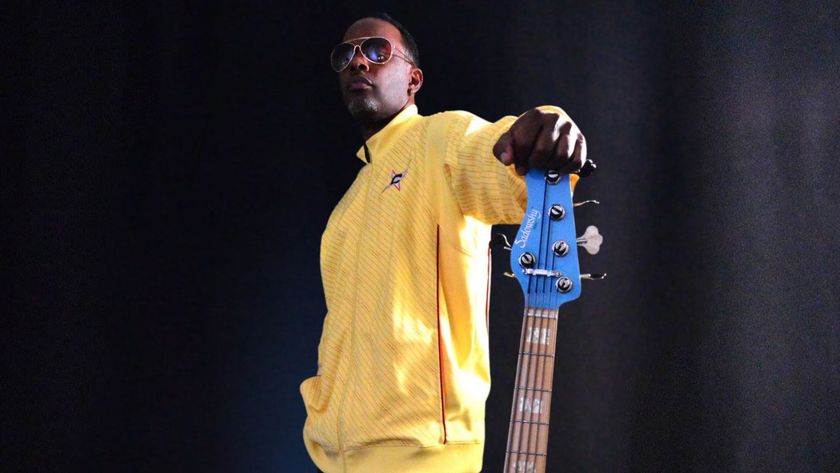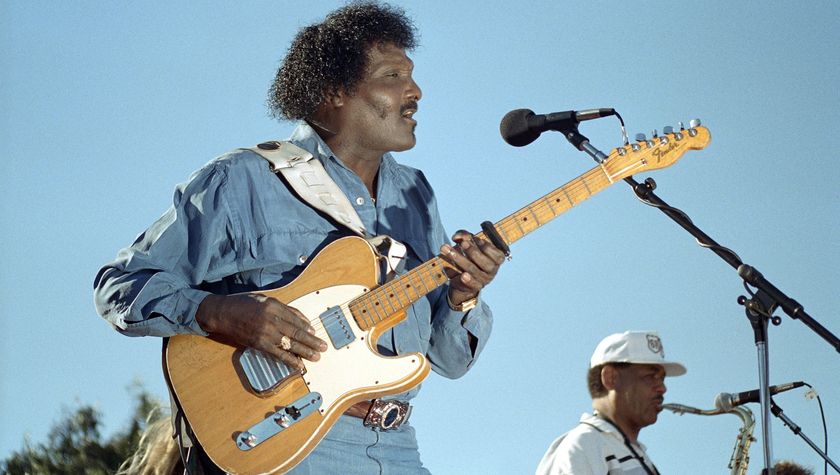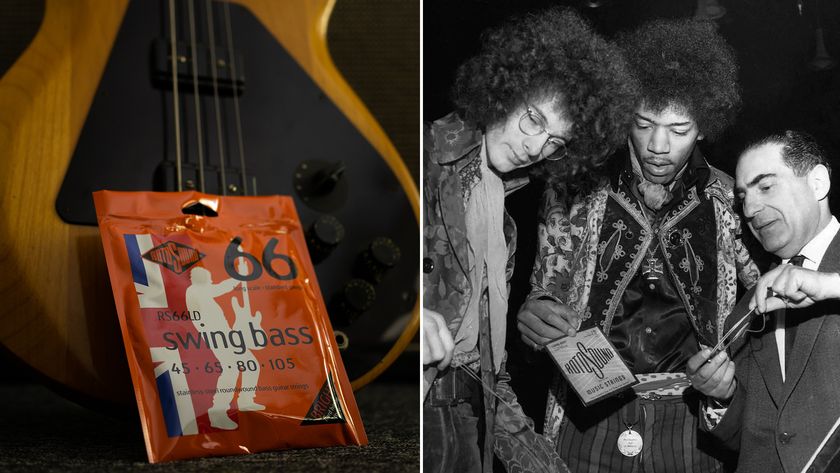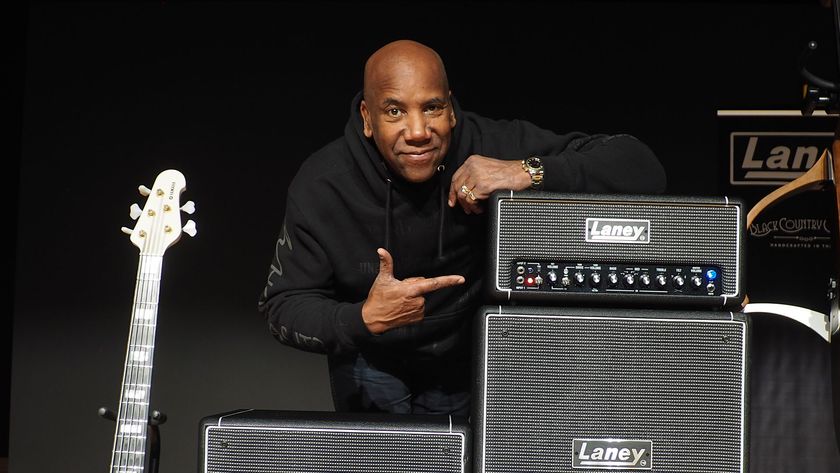Bonnie Whitmore: ”I’m one of those bassists who never changes their strings, and when I do, I rub bacon fat on them to deaden them!”
Austin-based Bonnie Whitmore returns with a bass-packed new album – and some serious food for thought...

”I started out in a family band when I was about eight years old, so I didn’t know who any bass players were,” says Bonnie Whitmore, whose new album Last Will And Testament is available now.
“My dad wanted a bass player, so that was the instrument that I got. As I grew older, I became aware of Paul McCartney and Carol Kaye, of course, but then also Kim Deal of the Pixies.”
For the last 20 years, Whitmore has accompanied a wide range of Americana musicians, including Hayes Carll, John Moreland, Eliza Gilkyson and Butch Hancock, while writing and recording her own material. Asked why she’s releasing Last Will And Testament now, she explains “It seems like a perfect storm right now, and this record needed to come out because of that. It’s exactly where it’s supposed to be, and at the right time.”
“I’ve been hanging on to some of these songs for a while,” she adds. “I wanted to launch into separate topics that I think are worth discussing. There’s so much anger and frustration that people feel, and I’m interested in finding out where that comes from.”
Whitmore’s new songs reference important subjects – gun violence and rape among them, in Time To Shoot’ and Asked For It respectively.
“I never thought of the word ‘feminist’ as a dirty word, but it’s certainly been through the wringer over the past couple of decades,” she says. “We’ve been seeing the apex of toxic masculinity at its finest. I wrote my song Asked For It before the #metoo movement, and the first couple of times I played it, it felt like the air was being sucked out of the room.
People were not ready to be faced with that kind of conversation, but the #metoo movement has definitely given it the space where people are wanting something that they can hold to. Awareness can bring forth change, that’s what I believe.”
Get The Pick Newsletter
All the latest guitar news, interviews, lessons, reviews, deals and more, direct to your inbox!
She continues: “Women’s empowerment was such a huge part of the '90s, with Lilith Fair and all these amazing women who were playing in a popular forum – and we watched it all be dismantled and taken away.
I definitely want an audience that is open to listening. I know nobody’s going to play my CD in clubs and grind their asses to it, and that’s okay
“The role models for women that were available from that point on were mostly young women that were on the Disney channel and pageantry-style shows. For me, I was seeing how that affected the quality of the music, and it put me in the position of being in fringe music. The popular position wasn’t where I was gravitating to any more.”
Last Will And Testament underlines these themes with a variety of weighty bass tones, explains Whitmore.
“There’s a custom P-Bass that was designed by Gamble Guitar, who does a wonderful job of building vintage-style basses. My standby is a Gibson lawsuit-era bass from the Seventies. It’s an Electra but it looks exactly like a EB-3. That’s my go-to bass.
Another bass is a Hofner, owned by Scott Davis, who got it when he was out touring in Germany – it’s a beautiful violin bass and one of my favorites to play. The last one is an eight-string Hagstrom. I like to have it in the mix to fill the gaps. I also borrowed a vintage Rickenbacker with the checkerboard inlay; it was my bass guru’s instrument.”
His name was George Reiff, who toured with the Dixie Chicks, and he passed away in 2017. ”It’s a beautiful bass, and I always need to have a little bit of George on my records. He used to let me go through his basses and play the one that I liked best, which suited me because I used to get ‘little lady’-d a lot when I went into music stores.”
“We mostly recorded straight into the dock, although there was a bass amp in the studio too. We used an awesome distortion pedal, close to a Big Muff: It’s a custom one that I got in Alabama.
“It doesn’t cut the low-end as bad, and it’s definitely ornery. I also used a tremolo pedal and speeded it up and slowed it down. I use D’Addario flatwounds and their baritone strings on the eight-string, because there’s not really a string pack for them.”
Vegetarians, beware – Whitmore has an unusual, homegrown approach to getting a treble-free tone.
“I’m one of those bassists who never changes their strings, and when I do have to change them, I rub bacon fat on them to deaden them. The deader the strings the better, for me. Of course, I clean the bacon grease off afterwards. Some people actually put their strings in the fry, with heat, but I can’t quite wrap my head around that idea...”
She concludes: “I definitely want an audience that is open to listening. I know nobody’s going to play my CD in clubs and grind their asses to it, and that’s okay. I love that music, but it’s not the music that I create. I think my audience is more mature – so it would be great to expand that out to younger groups of people, too.”
- For more information, head to bonniewhitmore.com.
Bass Player is the world’s most comprehensive, trusted and insightful bass publication for passionate bassists and active musicians of all ages. Whatever your ability, BP has the interviews, reviews and lessons that will make you a better bass player. We go behind the scenes with bass manufacturers, ask a stellar crew of bass players for their advice, and bring you insights into pretty much every style of bass playing that exists, from reggae to jazz to metal and beyond. The gear we review ranges from the affordable to the upmarket and we maximise the opportunity to evolve our playing with the best teachers on the planet.

“The six-string bass guitar was a dream – if Leo Fender could come back today I think he would approve”: 10 6-string bassists you need to know

“It’s great to tap like Les Claypool and thump like Marcus Miller, but the world of a studio bassist is different”: Having graced hits by OutKast, TLC, and Usher, LaMarquis Jefferson carved a niche in a scene long dominated by synthetic low-end








